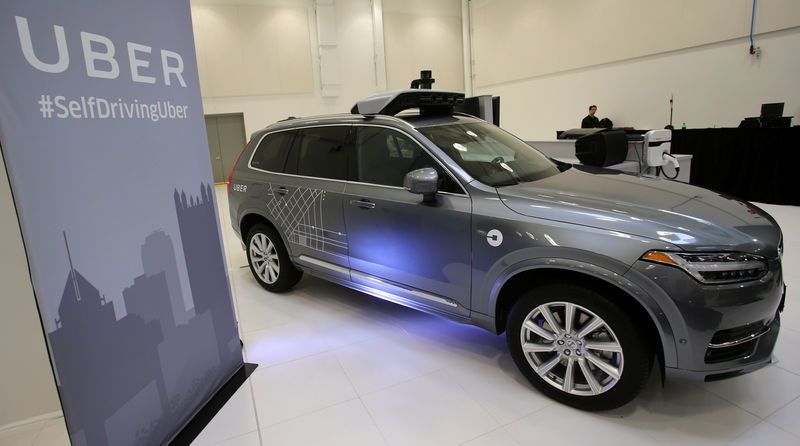50% of cars will be fully-autonomous in 25 years
 |
| You might not have a need to own a car in years ahead – just take an Uber autonomous vehicle everywhere you go |
To celebrate its 25th anniversary in the UK, Kia Motors (UK) Ltd. has commissioned a first-of-its-kind report looking at the predicted motoring industry over the next 25 years. The report, which covers brand new technologies, the role of connectivity in cars of the future and wider infrastructure and regulation, gives a fascinating insight into how the UK will drive in 25 years’ time.
Fully autonomous cars will account for half of all car sales in 25 years, with increasing degrees of autonomy ranging from cruise control to partial self-drive automation adding to traditional vehicles and over eight million connected cars on UK roads able to communicate with each other and the surrounding infrastructure.
Whilst autonomous cars rise in popularity, there will be a huge overhaul of the infrastructure designed to accommodate a mixture of autonomous cars, connected cars and traditional vehicles. In 25 years autonomous cars will have their own lanes on motorways and will, under certain conditions, be able to ‘communicate’ with the road to identify obstacles, travel delays and even potholes.
The report, which was commissioned in conjunction with Dr. Frank Shaw of the Centre for Future Studies, reveals some of the benefits of autonomous vehicles.
With level four autonomy (cars that are completely self-driving with no need for human input at all) parking fines will be almost eliminated as cars will be able to drop off their passengers before finding a suitable space, whilst insurance premiums for road traffic accidents are likely to be almost obsolete with cars able to avoid collisions through communication with each other.
With cars able to transport themselves between locations there is also likely to be an increase in car sharing – bringing down the costs and emissions associated with owning a car. The driving test process will be drastically overhauled – drivers will still need a license for partially autonomous cars, but fully self-driving vehicles will allow those who are unable to drive for reasons such as disability a freedom previously denied to them as no human intervention will be required.
Dr. Frank Shaw, who has been described by Time Magazine as one of the 10 most influential thinkers in the world, commented: "The future of the car industry is an exciting one, as there will be a transformation from an industry built by mechanics to one that is largely driven by software developers. There is considerable speculation in 2016 about autonomous driving, the full impacts of which will not become manifest until the 2040s.
"I am confident however that over the next twenty five years, the industry and technology companies will deliver a safer, more efficient and environmentally friendly driving experience for everyone."
"Technology in the motoring industry is moving at an incredibly fast pace, and this report is a fascinating look at how the world around our cars will need to adapt in order to keep up," says Paul Philpott, Kia Motors UK President and CEO.
"When Kia first started distributing cars in the UK 25 years ago the world was a very different place, as we have grown from a small importer with just one model to operating in 188 dealerships across the UK, we’re looking forward to the next 25 years and what the future will bring!"
